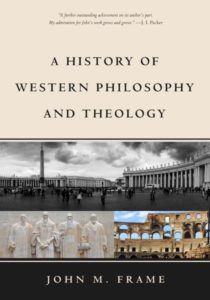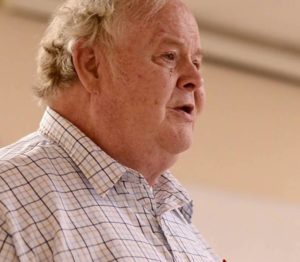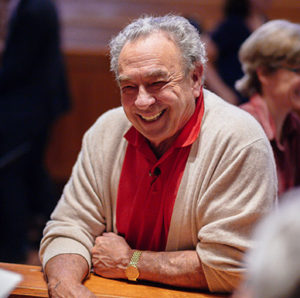Philosophy: Consequences of Ideas
-
Introduction
First Steps6 Steps -
Greek Philosophy1. Pre-Socratic Philosophers7 Steps|1 Quiz
-
2. Socrates6 Steps|1 Quiz
-
3. Plato7 Steps|1 Quiz
-
4. Aristotle7 Steps|1 Quiz
-
Medieval Christian Philosophy5. Plotinus & Augustine7 Steps|1 Quiz
-
6. Anselm & Aquinas9 Steps|1 Quiz
-
Watch: "Anselm" (23 min)
-
Read: Anselm (10 pp.)
-
Watch: "Aquinas - Part 1" (24 min)
-
Watch: "Aquinas - Part 2" (23 min)
-
Read: Aquinas (19 pp.)
-
Read: Frame on Anselm & Aquinas (38 pp.)
-
Write: Agree or Disagree with Anselm or Aquinas
-
Review: Anselm & Aquinas
-
Go Deeper: Read 'Aquinas' from "Great Philosophers" (12 pp.)
-
Watch: "Anselm" (23 min)
-
Early Modern Philosophy7. Renaissance & Descartes8 Steps|1 Quiz
-
Watch: "The Renaissance Revolution" (24 min)
-
Watch: "Descartes" (23 min)
-
Watch: "Descartes and 'Cause and Effect'" (24 min)
-
Read: Descartes (15 pp.)
-
Read: Frame on Renaissance & Descartes (18 pp.)
-
Write: A Meditation on a Dedication
-
Review: Renaissance & Descartes
-
Go Deeper: Read 'Descartes' from "Great Philosophers" (7 pp.)
-
Watch: "The Renaissance Revolution" (24 min)
-
8. Leibniz & Pascal9 Steps|1 Quiz
-
9. Locke8 Steps|1 Quiz
-
Watch: "Locke" (23 min)
-
Read: Locke (18 pp)
-
Watch: "Crisis in the 18th Century - Part 1" (24 min)
-
Watch: "Crisis in the 18th Century - Part 2" (20 min)
-
Read: Frame on Early Modern Thought (6 pp)
-
Write: Locke's Ideas about the Way We Know Things
-
Review: Locke
-
Go Deeper: Read 'Locke' in "Great Philosophers"
-
Watch: "Locke" (23 min)
-
10. Berkeley & Hume10 Steps|1 Quiz
-
Watch: "Berkeley and Empiricism" (23 min)
-
Read: Berkeley (7 pp.)
-
Read: Frame on Berkeley (4 pp.)
-
Watch: "Hume - Part 1" (24 min)
-
Watch: "Hume - Part 2" (25 min)
-
Read: Hume (5 pp.)
-
Read: Frame on Hume (9 pp.)
-
Write: Skeptical of Hume's Skepticism
-
Review: Berkeley and Hume
-
Go Deeper: Read 'Berkeley' and 'Hume' in "Great Philosophers"
-
Watch: "Berkeley and Empiricism" (23 min)
-
Modern Philosophy11. Kant7 Steps|1 Quiz
-
12. The Enlightenment6 Steps|1 Quiz
-
13. Hegel & Marx10 Steps|1 Quiz
-
Watch: "Hegel" (24 min)
-
Read: Frame on Hegel (7 pp)
-
Read: Hegel (7 pp)
-
Watch: "Marx" (23 min)
-
Read: Frame on Marx (5 pp)
-
Read: Marx (15 pp)
-
Write: Two Great Counterfeiters
-
Review: Hegel & Marx
-
Watch: "The Origins of Cultural Marxism" (23 min)
-
Read: "Cultural Marxism and Critical Theory: An Introductory Sketch"
-
Watch: "Hegel" (24 min)
-
14. Nietzsche & Kierkegaard8 Steps|1 Quiz
-
15. Sartre & Heidegger6 Steps|1 Quiz
-
16. Russell & Modern Philosophers8 Steps|1 Quiz
Books for This Class
John Frame’s History of Philosophy
Most of the books you will need are included with this class. They are found embedded within each lesson as readable PDFs which you can also download from within the book reader.

You will, however, need to buy one book:
A History of Western Philosophy and Theology by Dr. John Frame.
Buy from Amazon | Look for used versions at Book Finder
Here is how Dr. Frame explains his approach:
“What mainly provides the continuity of the story is my attempt to analyze and evaluate this whole history from a Christian point of view. I believe that the Bible should govern our philosophical thinking, as indeed it must govern every other area of human life (1 Cor. 10:31). Some, to be sure, doubt that the Bible has anything to say about philosophy. The best way of replying to these doubts is to show what in fact the Bible does say on the subject. That will be the main theme and emphasis of this book.
“My whole idea is to expose the fact that the history of philosophy and theology is nothing less than spiritual warfare in the life of the mind.”
This last comment is very important, for it reveals ultimately what is at stake in the history of philosophy.
Sproul and Frame Together
Dr. Frame’s book and Dr. Sproul’s video lectures serve as the two columns supporting the class. This is intentional. Each of these Christian men was a towering intellect who, although agreeing on many things, represented two different approaches to Christian philosophy and apologetics (the defense of the faith).
RC Sproul held to a ‘classical realist’ approach to Christian apologetics while John Frame held to a ‘presuppositional’ approach.
The truth is that in their critiques of non-Christian thinking, they each provide many important points to consider. As a young man or woman of a future generation, you must learn to sift through competing ideas and come to what you believe is the truth according to the Scripture.
Furthermore, it is a good lesson to all of us that two godly men of genius can see things differently, yet still agree on the fundamentals of their shared faith.
Nevertheless, the two men never became friends. This is unfortunate, but it underscores the challenge that intellectually-gifted Christians face: how do we maintain what we feel are key distinctions while still being friends with Christians with whom we disagree?
After R.C. Sproul died in 2017, John Frame wrote this:

“RC Sproul and I were born two months apart, in the same city, Pittsburgh. Both of us were profoundly influenced by John Gerstner. RC went to Pittsburgh Seminary to study with Gerstner; I went to Westminster to study with Gerstner’s teachers. But I visited Pittsburgh Seminary a few times.
“Once in Gerstner’s class, there was a young fellow who dominated the class discussion. A friend later introduced the student to me as ‘Bob’ Sproul. Later that year I visited the Wheaton Philosophy Conference, and again there was Bob, going at it with the other conferees.
“Those meetings were sufficient to pick up my ears when I heard Bob’s name. I remember hearing of him working with Jerry Kirk in Cincinnati, teaching at Gordon-Conwell Seminary, and other ministries. Then came the Ligonier Valley Study Center. I spoke at one of the early conferences— on inerrancy— and for the first time I was able to say I knew RC— formerly Bob.

“We could have been good friends, I think. We were the same age, Pittsburghers, Calvinists, and most of all disciples of Jesus Christ. But alas, we belonged to different clubs. I followed Van Til, Gerstner’s teacher, but Gerstner did not follow Van Til, and RC followed Gerstner. I always felt his heart and mine were in the same place.
“But RC was nevertheless in one club, and I was in a different one. So we never actually had a good talk, even about old times in Pittsburgh. But I greatly admired dear RC, and I ranked him as the best communicator of Reformed truth in my time.
“So now I lean over the wretched boundaries between our respective clubs, and I pray God’s comfort in Jesus to his family, his church, and his great movement. And I pray God’s prosperity on all of these wonderful brothers and sisters. For our love far transcends the boundaries of our clubs.”

